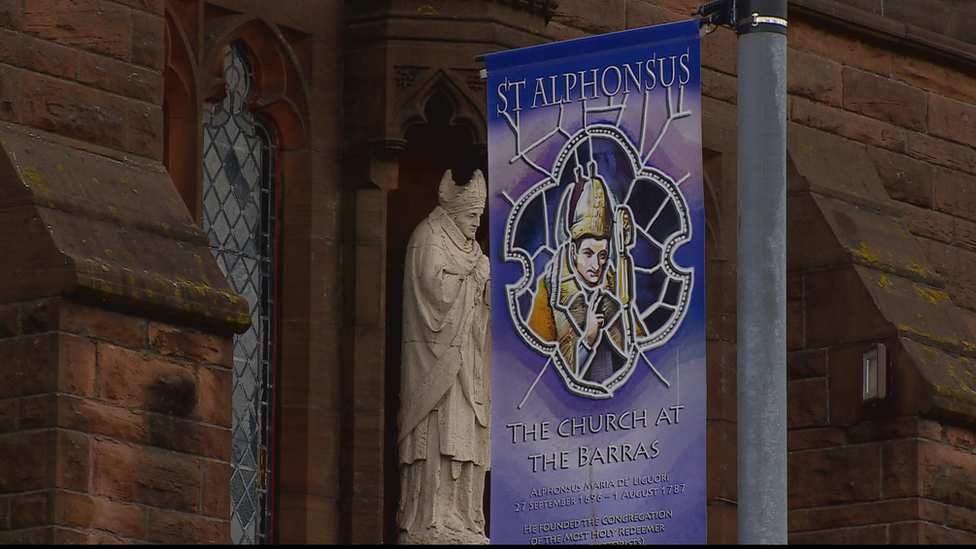Re-routed Loyalist marches through Glasgow called off
- Published
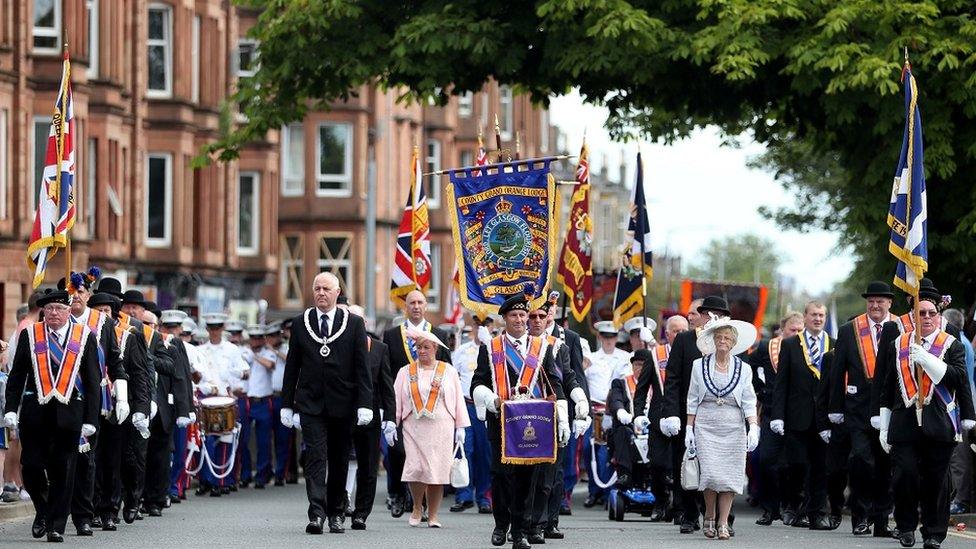
Loyalists had been planning to march through the east end of Glasgow
Loyalist marchers have called off two parades ordered to be re-routed through Glasgow on Saturday.
Orange Order groups lost a court challenge to overturn the council decision to switch the routes.
Four marches on Saturday and Sunday were due to pass a church where a Catholic priest was attacked last year.
Glasgow City Council said the changes had been made after Police Scotland raised concerns about the "marches and counter protests".
Thomas Porteous, Scottish amalgamated committee chairman for the Apprentice Boys of Derry, told BBC Scotland he was disappointed with the Glasgow Sheriff Court decision.
The Apprentice Boys marches planned for Saturday have been cancelled but two re-routed Orange Order events on Sunday are still scheduled to go ahead.
Mr Porteous said: "We have to acknowledge the sheriff's decision.
"But, having said that, I am very disappointed and very despondent with the decision in favour of Glasgow City Council.
"We will have to, as an organisation, go back and regroup and rethink our strategy moving forward."
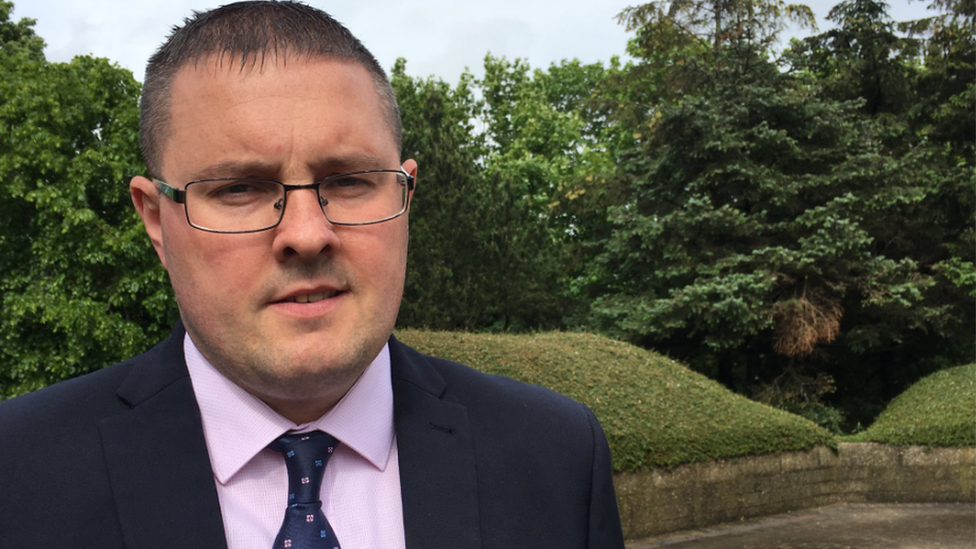
Thomas Porteous criticised the court decision
James McLean, grand treasurer at The Scottish Orange Order, added: "We will continue our fight for fairness and equality for people of all faiths.
"We simply want to be able to celebrate our own beliefs just as other faiths can celebrate theirs."
In his ruling, sheriff Stuart Reid said: "Glasgow City Council had applied the law correctly, based on correct material facts and have used their discretion in a reasonable manner."
The parades were due to pass St Alphonsus Church on London Road, where Canon Tom White was spat on during the Orange Order Boyne march last July.
Police Scotland told the council that, without changing the route away from that stretch of London Road, the force would need to call in officers from across the country in order to safely manage the marches.
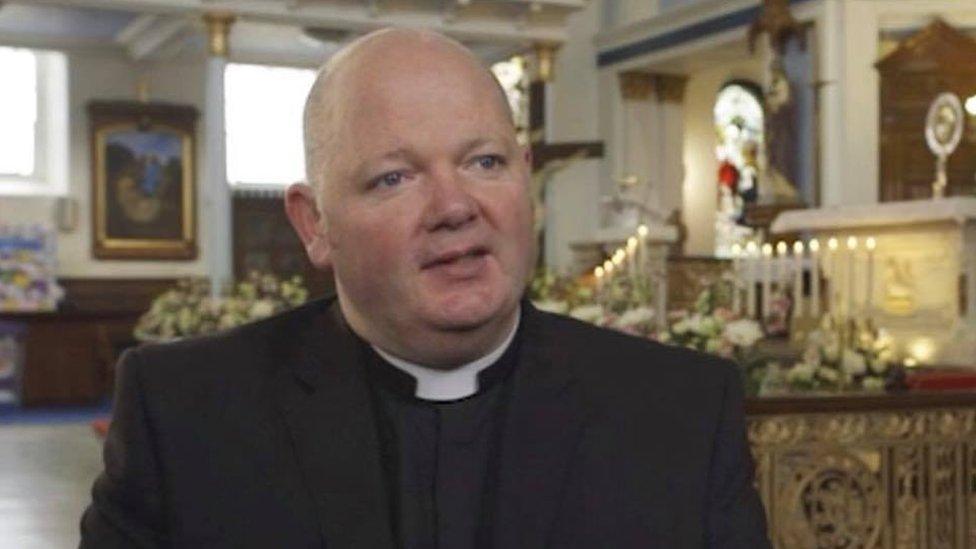
Canon Tom White was spat on outside the church in London Road during the annual Orange Order Boyne march last July
The changes have been made using the delegated powers of council officers instead of the usual route of through the local authority's public processions committee.
Four Orange Order groups - Bridgeton Orange and Purple District 37, Dalmarnock Orange and Purple District 50, Dalmarnock No Surrender Branch Club and the Apprentice Boys of Derry (Bridgeton) - lodged an appeal at Glasgow Sheriff Court against the council's decision.
The groups' lawyer, Neil MacDougall, told the court that all his clients were "seeking to do is exercise their rights to walk where they have walked for the last 15 to 20 years with largely no incidents.
Freedom of expression
"They gave their notifications in January and March this year and there was no issues until 18 May."
Sheriff Reid awarded in favour of the council in a hearing which lasted over two hours.
He said: "This was a difficult and anxious point.
"I am satisfied that the council has the statutory power imposed to re-route public processions.
"The right to freedom of expression is not an unrestricted right on particular grounds."
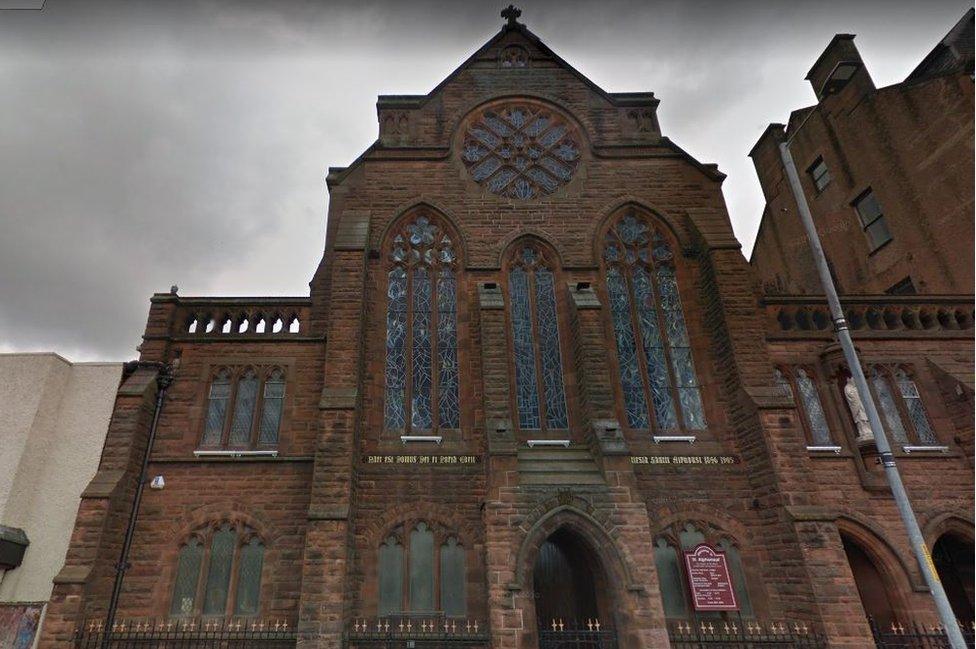
St Alphonsus Church is on London Road in the east end of Glasgow
Jeanette Findlay, from the Call it Out anti-sectarian organisation, said she hoped other local authorities in Scotland take heed of the sheriff's decision.
She said: "This gives the council the legal certainty that what they have been saying is correct.
"It allows them to make the decisions that protect all parts of the community and protect all our rights.
"Cosla [the local government representative group] should take that information and advise local authorities all around the country.
"Because this is not just a Glasgow problem, it's a Scotland-wide problem."
'Minimise disruption'
A Police Scotland spokeswoman said: "The decisions on public processions are a matter for local authorities. We note the sheriff's comments and we will continue to work closely with local authorities to ensure the safety of those taking part in parades and minimise disruption to the local community."
A spokesman for Glasgow City Council said: "We note the sheriff's comment that the council's actions have been lawful, necessary and proportionate and will take the time to consider his full judgement once it is available."
- Published31 May 2019
